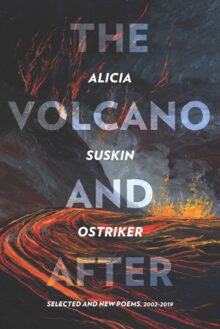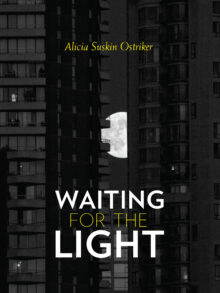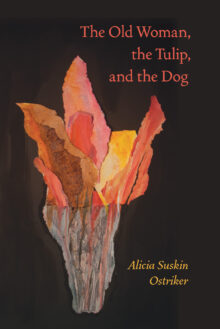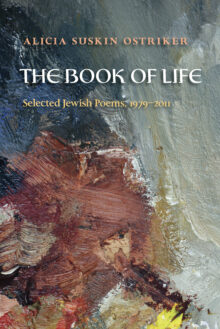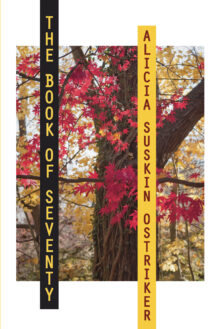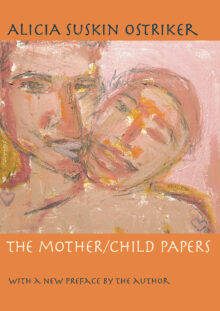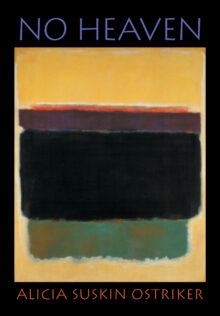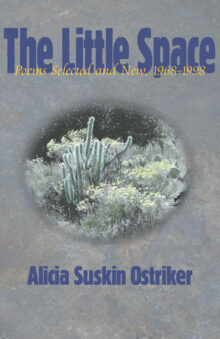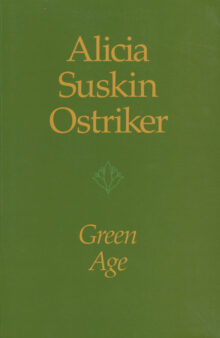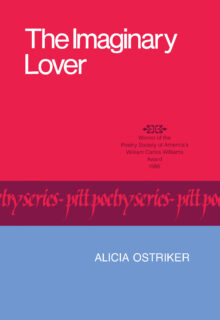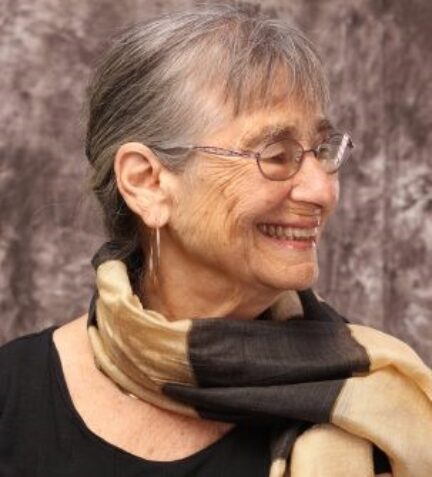
Alicia Suskin Ostriker
Alicia Suskin Ostriker is a major American poet and critic. She is the author of numerous poetry collections, including, most recently, The Old Woman, the Tulip, and the Dog; The Book of Life: Selected Jewish Poems, 1979–2011; and The Book of Seventy, winner of the National Jewish Book Award. She has received the Paterson Poetry Prize, the San Francisco State Poetry Center Award, the William Carlos Williams Award, and has twice been a finalist for the National Book Award, among other honors. Ostriker teaches in the low-residency MFA program at Drew University and is currently a chancellor of the Academy of American Poets.
The Volcano and After
Selected and New Poems 2002-2019
Alicia Suskin Ostriker’s passionate voice has long been acknowledged as a vital force in American poetry. From urgent spiritual quest to biting political satire, from elegy to comedy, from celebration of the city street and the world “as a paradise might be / if we had eyes to see,” to the “crack in earth . . . crack in her mind,” from brilliant evocations of art and music to mother-daughter wrestlings, Ostriker’s poetry rings with insistence on beauty and truth. Drawing from six of her previous books, and highlighting a sequence of bold new poems exploring the challenges and absurdities of aging, The Volcano and After is a masterpiece for our time.
Waiting for the Light
What is it like living today in the chaos of a city that is at once brutal and beautiful, heir to immigrant ancestors “who supposed their children's children would be rich and free?” What is it to live in the chaos of a world driven by “intolerable, unquenchable human desire?” How do we cope with all the wars? In the midst of the dark matter and dark energy of the universe, do we know what train we're on? In this cornucopia of a book, Ostriker finds herself immersed in phenomena ranging from a first snowfall in New York City to the Tibetan diaspora, asking questions that have no reply, writing poems in which “the arrow may be blown off course by storm and returned by miracle.”
The Old Woman, the Tulip, and the Dog
This book by a major American poet is for poetry readers at all levels, academic and non-academic. It is a sequence of poems that will surprise and delight readers—in the voices of an old woman full of memories, a glamorous tulip, and an earthy dog who always has the last word.
The Book of Life
Selected Jewish Poems, 1979–2011
Poet Alicia Ostriker is also a highly original scholar/teacher of midrash, the commentary and exegesis of scripture (the same root as madrasa, place of study). Here she u2018studies’ Jewish history, Jewish passion, Jewish contradictions, in a compendium of learned, crafted, earthy and outward-looking poems that show how this quest has informed and enriched her whole poet’s trajectory.”
—Marilyn Hacker
The Book of Seventy
Alicia Ostriker seizes the opportunity to take us where too few poets have been able to take us: into a domain of what our fabulists like to call the “golden years.” as we live longer, we become inevitably curious about the actual texture of these late years, curious about what happens in the soul. Out of that curiosity is a new kind of poetry born, an elderstile that has passion and irony, wisdom, folly, clarity and tenderness. In her keen engagement with the self and the world, Ostriker offers us a voice and a perspective that explore the territory of seventy and beyond.
The Mother/Child Papers
With a new preface by the author
In 1970, as the war in Vietnam was heating up, Ostriker was awaiting the birth of her son. On April 30, President Nixon announced the bombing of Cambodia. On May 14, four students were shot and killed by National Guardsmen at Kent State University. The poems in this collection confront Ostriker’s personal tumult as she considered the world she had brought her son into.
No Heaven
Alicia Suskin Ostriker's voice has long been acknowledged as a major force in American poetry. In No Heaven, her eleventh collection, she takes a hint from John Lennon's “Imagine” to wrestle with the world as it is: “no hell below us, / above us only sky.”
It is a world of cities, including New York, London, Jerusalem, and Berlin, where the poet can celebrate pickup basketball, peace marches, and the energy of graffiti. It is also a world of families, generations coming and going, of love, love affairs, and friendship. Then it is a world full of art and music, of Rembrandt and Bonnard, Mozart and Brahms. Finally, it is a world haunted by violence and war. <I>No Heaven</I> rises to a climax with elegies for Yitzhak Rabin, assassinated by an Israeli zealot, and for the poet's mother, whose death is experienced in the context of a post-9/11 impulse to destroy that seems to seduce whole nations.
Yet Ostriker's ultimate stance is to “Try to praise the mutilated world,” as the poet Adam Zagajewski has counseled. At times lyric, at times satiric, Ostriker steadfastly pursuesin No Heaven her poetics of ardor, a passion for the here and now that has chastened and consoled her many devoted readers.
The Little Space
Poems Selected and New, 1968–1998
In this selection of poems from thirty years of a distinguished writing career, we see the growth of a poet’s mind, heart, and spirit as Ostriker struggles to love “this wounded / World that we cannot heal, that is our bride.” Whether she probes the meaning of childhood, family, marriage, and motherhood, or art, history, politics, and God; whether she is celebrating sexuality or confronting mortality, the poet includes “whatever I can grasp of human experience within my art—the good and beautiful, the evil and chaotic. I tell my students that they must write what they are afraid to write; and I attempt to do so myself.”
Green Age
Alicia Suskin Ostriker is that rare combination, a writer equally admired as poet and critic. The variety of subjects in Green Age is characteristic of her writing: from the opening poem, “Fifty,” funny, courageous, and defiant, to a set of birthday poems for a grown daughter; from emulations of the Persian mystic Rumi, to the provactive “Meditation in Seven Days,” whose central assumption is that we may find in the Bible traces of a Canaanite goddess whose worship was forbidden with the advent of patriarchal monotheism. But if her subjects may seem formidable, her poems are not. Ostriker is accessible, witty, daring, and humane, and she has become one of the most praised poets of her generation.
The Imaginary Lover
• Winner of the 1987 William Carlos Williams Award presented by the Poetry Society of America
With The Imaginary Lover, Alicia Suskin Ostriker takes her place among the most striking and original poets whose work is informed by feminist consciousness. Her characterization of the best poetry by women, in the New York Times Book Review, aptly describes this book: “intimate rather than remote, passionate rather than distant, defying divisions between emotion and intellect, private and public, life and art, writer and reader.” To read her poems is to “discover not only more of what it means to be a woman but more of what it means to be human.”

